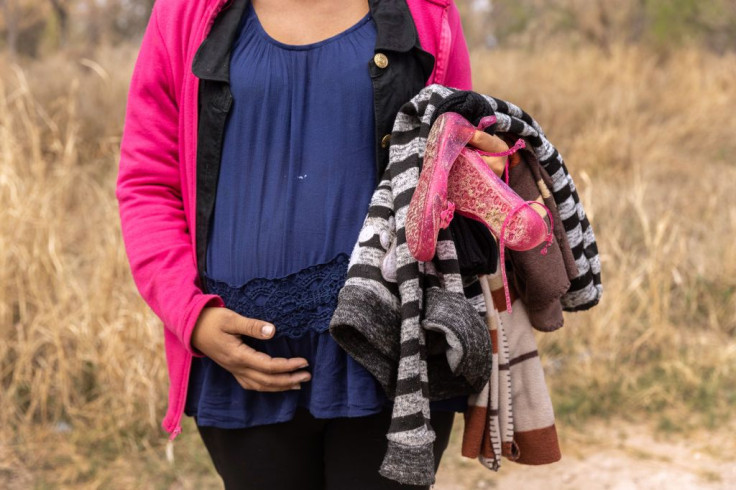
In a significant shift within the U.S. immigration system, asylum seekers from Latin American countries are experiencing unprecedented denial rates. As of October 2024, the overall asylum grant rate has plummeted to 35.8%, a stark decline from the 52.6% peak observed in September 2023.
The data comes from the Transactional Records Access Clearinghouse (TRAC) at Syracuse University. The report highlights a concerning trend:
The TRAC report underscores a notable decrease in asylum approvals over the past year. After reaching a high of 52.6% in September 2023, grant rates have steadily declined, settling at 35.8% by October 2024. This downturn coincides with the implementation of expedited asylum processing initiatives, often referred to as "rocket dockets," which have historically correlated with lower approval rates.
Disparities among nationalities
The data reveals significant disparities in asylum outcomes based on applicants' countries of origin. Notably, individuals from Latin American nations are facing some of the highest denial rates.
For instance, asylum seekers from the Dominican Republic have an approval rate of just 11.0%, while those from Mexico, Colombia, Ecuador, and Brazil have grant rates of 16.6%, 19.3%, 19.7%, and 19.7% respectively.
In contrast, applicants from countries such as Belarus and Afghanistan enjoy approval rates exceeding 88%. People from Uganda, Eritrea and Russia also exceded approvals above 85%
The report also highlights that a significant portion of asylum decisions involves applicants from a limited number of countries. Eight nationalities account for over half of all asylum decisions in Fiscal Year 2024, with many of these groups experiencing below-average grant rates. Notably, Mexico and Colombia are among the countries with the lowest success rates, contributing to the overall decline in approvals.
The declining approval rates for Latin American asylum seekers raise concerns among immigration advocates and policymakers. The expedited processing measures, while intended to address backlogs, may inadvertently compromise the thoroughness of case evaluations, potentially affecting the fairness of outcomes.
Furthermore, according to the TAC report the stark disparities in approval rates between different nationalities suggest potential biases or systemic issues within the adjudication process. Advocates argue that asylum decisions should be based solely on the merits of individual cases, without undue influence from applicants' countries of origin.
Take a look at the complete list
| Country | Total Cases | Approved Cases | Approval Rate (%) |
|---|---|---|---|
Belarus | 284 | 251 | 88.4 |
Afghanistan | 619 | 547 | 88.4 |
Uganda | 103 | 89 | 86.4 |
Eritrea | 251 | 214 | 85.3 |
Russia | 4,407 | 3,754 | 85.2 |
Kazakhstan | 184 | 154 | 83.7 |
Kosovo | 104 | 87 | 83.7 |
Iran | 242 | 201 | 83.1 |
Ukraine | 231 | 191 | 82.7 |
Ethiopia | 402 | 327 | 81.3 |
Armenia | 424 | 341 | 80.4 |
Nepal | 663 | 526 | 79.3 |
Iraq | 196 | 151 | 77.0 |
China | 4,126 | 3,159 | 76.6 |
Albania | 227 | 173 | 76.2 |
Cameroon | 774 | 576 | 74.4 |
Turkey | 695 | 517 | 74.4 |
Bangladesh | 1,075 | 783 | 72.8 |
Egypt | 304 | 221 | 72.7 |
Syria | 132 | 91 | 68.9 |
Burkina Faso | 144 | 97 | 67.4 |
Pakistan | 358 | 240 | 67.0 |
Guinea | 253 | 166 | 65.6 |
Ghana | 383 | 251 | 65.5 |
India | 3,875 | 2,537 | 65.5 |
Angola | 324 | 212 | 65.4 |
Georgia | 489 | 319 | 65.2 |
Venezuela | 4,236 | 2,731 | 64.5 |
Somalia | 233 | 146 | 62.7 |
Nigeria | 672 | 395 | 58.8 |
Democratic Republic of Congo | 155 | 91 | 58.7 |
Kyrgyzstan | 205 | 119 | 58.0 |
Cuba | 2,083 | 1,074 | 51.6 |
Vietnam | 175 | 90 | 51.4 |
Uzbekistan | 584 | 287 | 49.1 |
Tajikistan | 160 | 72 | 45.0 |
Nicaragua | 4,794 | 2,093 | 43.7 |
Jamaica | 276 | 107 | 38.8 |
Guatemala | 4,798 | 1,822 | 38.0 |
El Salvador | 5,042 | 1,883 | 37.3 |
Haiti | 265 | 84 | 31.7 |
Mauritania | 386 | 117 | 30.3 |
Honduras | 6,201 | 1,802 | 29.1 |
Romania | 248 | 65 | 26.2 |
Bolivia | 144 | 36 | 25.0 |
Senegal | 452 | 103 | 22.8 |
Peru | 3,184 | 655 | 20.6 |
Brazil | 3,077 | 606 | 19.7 |
Ecuador | 3,679 | 724 | 19.7 |
Colombia | 5,710 | 1,101 | 19.3 |
Mexico | 4,950 | 821 | 16.6 |
Dominican Republic | 254 | 28 | 11.0 |
© 2025 Latin Times. All rights reserved. Do not reproduce without permission.






